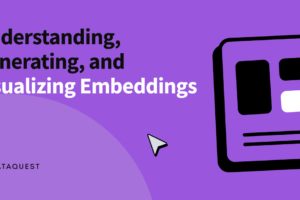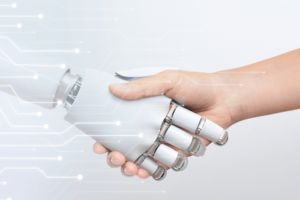
Industry Matters: Choosing An LMS Based On Your Sector

The Importance Of Choosing An LMS That Fits Your Industry
Not all Learning Management Systems (LMSs) are the same. This means that what works well in one industry can completely fail in another. For example, you can’t expect an LMS built for schools to be suitable for training doctors. One of the biggest mistakes organizations make when choosing an LMS is focusing only on features. Sure, AI or gamification sounds exciting, but if your LMS can’t handle your industry’s compliance requirements, or if it frustrates your learners because it’s not built for their day-to-day work, it will quickly become an unworthy investment. The truth is, your LMS decision shouldn’t be about what the platform can do but rather reflect your business, what it does, and the environment you work in. So, your priority when choosing an LMS should be considering your industry, its challenges, learners, and the regulations you must follow.
Why is it so important, though? First, an LMS that fits your industry saves you money. If your LMS comes with features you’ll never use or lacks the ones you do need, you’re either paying for nothing or spending extra on add-ons. Then, the perfect LMS reduces compliance risks. In industries like banking, healthcare, or manufacturing, not following regulations can be more than just costly; it can damage your reputation or even shut down your business. Lastly, the right LMS boosts learner adoption. When an LMS fits naturally into your industry’s way of working, people are more likely to engage with it.
Without further ado, let’s explore seven major industries and their unique needs and see what features their LMSs should have to deliver the best possible experience that leads them straight to success.
Must-Have LMS Features Based On Your Industry
Banking And Finance
In banking and finance, mistakes are extremely costly. Missing a compliance deadline, mishandling sensitive customer data, or failing to train staff on the latest regulations can lead to fines, legal trouble, and damage to your reputation. That’s why the right LMS is a must.
So, what makes an LMS right for the banking and finance industry? First, it has to handle compliance effectively. You’ll want built-in tools that make it easy to deliver compliance training on regulations like AML, GDPR, or any local financial rules. The LMS should automatically track who’s completed what, issue certificates, and notify anyone falling behind. Second, it needs security. Since you’re dealing with sensitive personal and financial information, your LMS must use strong data encryption, secure logins with multifactor authentication, and strict permissions. Not every user should have access to every piece of data; therefore, your system should be able to control that. Third, you’ll want reporting. Regulators want to see documents, and an LMS with detailed training records comes in handy in the case of audits. A report showing that all of your staff completed the latest training can be a lifesaver.
eLearning
If you create and deliver online courses, your LMS is your business. Whether you’re running a small online academy, a corporate training company, or a course platform, your LMS must allow you to create, deliver, and grow your business effortlessly.
Specifically, you don’t want to be using three different tools just to make a course. That’s why built-in authoring tools are so useful: they allow you to design lessons, upload videos, add quizzes, and publish courses all in one place without changing platforms. A great LMS will also support different content types, like PDFs, videos, audio, and others. It’s better if it has a content library full of materials that learners can choose from based on their preferences. Regarding delivery, the right LMS for the eLearning industry should have smooth navigation, short load times, and a layout suitable for both mobile and desktop. If you work with different brands or clients, you want to be able to create different interfaces for each one and manage them all from a dashboard. Scalability is also important since you want your eLearning business to grow. That means your LMS should handle thousands of students without crashing and come with reporting tools so you can see how learners engage with your content.
Food And Beverage
Training in the food and beverage industry includes keeping customers safe, keeping teams consistent, and running operations smoothly. Whether you’re managing a restaurant chain or a small café, an LMS suitable for the food and beverages industry should deliver the right knowledge to the right people at the right time. However, there’s a challenge. Your teams are busy and on the go, and may not be able to sit for a lengthy training course. That’s why your LMS should be fast, flexible, and mobile-friendly.
Mobile learning is essential. For instance, your staff could learn about new hygiene protocols during a quick break or watch a video just minutes before their shift. A good LMS will make it easy to log in, complete a short lesson, and get back to work, all from a phone or tablet. Push notifications are also beneficial. If a health regulation changes, you can send an alert with a short module attached, so no one misses important updates. And since your workforce can’t spend much time on training, microlearning is a must. Short lessons that take just 3–5 minutes but are full of knowledge are exactly what your team needs. Food and beverage teams are often diverse and multilingual. Therefore, your LMS should offer multilanguage support so everyone gets the same clear instructions, no matter their native language. This not only improves training effectiveness but also helps avoid costly mistakes that can happen when instructions are misunderstood. Lastly, try video-based training since some skills just can’t be explained adequately with text. Upload high-quality videos to your LMS, add interactive elements, and see how tutorials become much more effective.
Hospitals And Healthcare
In healthcare, proper training is often a matter of life and death. So, your LMS isn’t just there to teach but to protect patients, meet strict compliance standards, and keep skills fresh. The tricky part is that healthcare staff are busy, with unpredictable schedules, and facing regulations that change all the time. That’s why your LMS should fit the hospital and healthcare industry and thus meet the demands of such a high-pressure environment.
In healthcare, the most important aspect of training is compliance. Missing a compliance deadline can mean losing your license or facing fines. An LMS with built-in compliance tracking is all you need. The platform automatically records who has completed required training, sends reminders for upcoming renewals, and creates reports you can hand to regulators easily. These regulations can be HIPAA for US-based organizations and GDPR, local medical licenses, or safety standards for others. There’s also the matter of busy schedules. Healthcare workers are on call, working nights, or covering double shifts. That means training should happen 24/7 and be accessible through mobiles so staff can complete it on their own time. Offline access is also a plus, especially in areas with unreliable internet. And since hospitals run different systems for patient records, scheduling tools, and HR databases, look for an LMS that integrates with hospital management systems.
Hospitality
Whether you run a hotel, a resort, or even a cruise ship, your LMS plays a huge role in ensuring every guest has the best possible experience. However, hospitality staff can be challenging to train. Those teams are often large, diverse, and constantly changing due to seasonal hiring. Also, staff might speak different languages, work across multiple locations, and start at completely different times of year.
Based on all the above, training must be effective from day one, and that involves onboarding. In peak season, you have just a few days to train new hires. A hospitality-suitable LMS makes onboarding fast, structured, and engaging. You can create a sequence of lessons that new hires can complete before their first shift, covering essentials like customer service standards, safety procedures, and company policies. This way, everyone is productive immediately. Regarding a global workforce, training materials need to be accessible in multiple languages. A good LMS should offer built-in multilingual capabilities so that you can deliver the exact same training in all languages. It’s also important to make lessons engaging through gamification with points, badges, or leaderboards to keep employees motivated. Finally, if you manage multiple hotels or restaurants, your LMS should help ensure every location delivers the same standard of service. That means having one central hub for training content, so when something new pops up, you can update it once and send it to everyone instantly.
Retail
In retail, everything happens fast. New products launch, sales change weekly, and customer expectations get higher. The hard truth is also that retail has high staff turnover, varied schedules, and a constant need for updated product knowledge. That means your LMS for the retail industry has to deliver quick, easily accessible, and current training.
Every time you introduce a new product, retail staff need to quickly learn its features, benefits, and selling points. An LMS makes this simple by allowing you to upload short product videos, infographics, or quick quizzes so staff can learn on their phones during a break. This way, even part-time staff can get up to speed without long sessions. And since retail involves connecting with customers, soft skills training, selling techniques, and complaint handling are also essential. So, make sure your LMS offers role-specific learning paths so sales associates, cashiers, and managers each get relevant training. Plus, with all the constant changes in retail, you need an LMS that acts as a communication hub where every piece of training is sent to every store location and all employees. Don’t forget to make it fun, too. A gamified lesson will keep your workers’ interest and maybe contribute to fewer turnovers as well.
Manufacturing
A single mistake in manufacturing can lead to costly downtime, safety hazards, or quality issues. That’s why training in this industry is all about safety, compliance, and precision. Hence, your LMS should keep your team skilled, safe, and up to date.
Manufacturing environments can be hazardous, and safety training is nonnegotiable. The right LMS makes it easy to deliver regular safety courses, refreshers, and certifications without taking up much of your staff’s precious time. Microlearning is a big help here. Instead of a long lecture, you can break training into short modules that employees can complete during breaks or shift changes. This keeps safety a top priority without overwhelming them. Compliance is also key but complex. Your LMS should make it easy to track who’s certified, when renewals are due, and what training is mandatory. With automated reminders, you can ensure no one misses a deadline, avoiding both legal trouble and interruptions. On top of all that, every role in manufacturing requires specialized skills. This is why you need an LMS that lets you tailor training paths for each role so workers can improve their skills and advance in their careers. Plus, when you invest in upskilling, you boost employee retention. Lastly, since manufacturing workers don’t usually work on a computer, offer mobile access and offline training capabilities so that workers can complete courses on tablets or mobile devices from anywhere.
Does Your LMS Fit Your Industry? A Checklist
Industry |
Must-Have Features |
Banking And Finance |
☐ Compliance Tracking: Automated reminders, certification management, and reports. ☐ Security: Data encryption, multi-factor authentication, and role-based access. ☐ Scalability: Able to handle thousands of users. ☐ Integration: Works with your HR and compliance software. |
eLearning |
☐ Built-In Authoring Tools: Design, publish, and track courses from a single place. ☐ User-Friendly Interface: Smooth and intuitive navigation, multi-device responsiveness. ☐ Customization: Different branding and learning materials for different clients and learner groups. ☐ Scalability: Handling multiple users seamlessly. |
Food And Beverage |
☐ Mobile Learning: Doing lessons on tablets and mobiles. Perfect for staff on the move. ☐ Microlearning: Short lessons during breaks or between shifts. ☐ Multilingual Support: Translate courses in different languages for inclusivity and better results. ☐ Video-Based Training: Perfect for practical tasks. |
Hospitals And Healthcare |
☐ Compliance Training: To avoid legal and financial issues and follow local regulations. ☐ Automated Certification Renewals: Your staff is always updated on the latest regulation changes. ☐ 24/7 Mobile Access: For busy shift workers. ☐ Integration: Seamless flow of data between hospital systems. |
Hospitality |
☐ Fast Onboarding Tools: These are for seasonal workers during peak seasons. ☐ Multilingual Courses: For diverse staff and better learning outcomes. ☐ Centralized Content Management: Effortlessly manage your business in multiple locations. ☐ Gamification: Motivating your employees. |
Retail |
☐ Mobile Learning: Quick training during shifts. ☐ Role-Based Learning: Different roles get different training. ☐ Central Hub: Centralized updates for consistent information across locations. ☐ Gamification: Engagement and motivation, thus a lower turnover rate. |
Manufacturing |
☐ Microlearning: Quick modules for safety and skills training. ☐ Compliance Tracking: See who’s completed what and send automated reminders. ☐ Role-Specific Learning Paths: Accommodate each worker’s unique skill set. ☐ Mobile And Offline Access: Allow on-the-go learning. |
Conclusion
Choosing an LMS that fits your industry is what will lead you closer to success. When your LMS truly matches your sector’s needs, you get better training results, smoother compliance, and even better ROI. So, you should no longer waste time or money on features you don’t need. Thankfully, our directory makes this easy. You can browse thousands of LMS options, filter them by industry, compare prices, read real user reviews, and find the perfect fit for your team, all in one place, making your decision-making process simpler.
Source link



